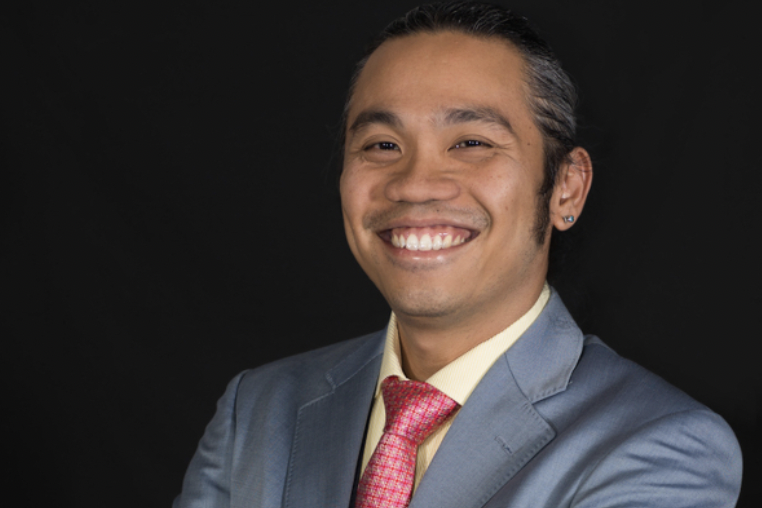Chasing nirvana, woman seeks court order to leave Islam
Lawyer says client has exhausted all avenues in shariah system to leave faith

Lawyer Fahri Azzat, who is representing the woman, says the case differs from previous similar cases, as his client is turning to the civil court system in her bid to renounce Islam only after having exhausted her options in the shariah court system. – AFP pic, April 13, 2022
KUALA LUMPUR – A 32-year-old woman has filed a civil suit against the federal government and religious authorities in a bid to renounce Islam so that she can convert to Confucianism and Buddhism.
Lawyer Fahri Azzat, who is representing the woman, said the case will be a test for establishing freedom of religion for Muslims in Malaysia, where apostasy is rejected by the government.
He said his client’s case differs from previous attempts to secure the legal right to leave Islam, as she had already made a prior attempt through the shariah court system.
“Previous cases they went to the civil courts first. In our situation, my client went to the shariah court and the shariah appeals court as well,” Fahri told The Vibes.
We exhausted the shariah process, and they are still not letting her go.”
In her application for a judicial review at the high court, the woman – born to Muslim parents – said she had never practised Islam, as neither of her parents, who are divorced, had practised the religion.
She said her parents had given her free rein to determine her own faith, which she said she found in Confucianism and Buddhism through which she hopes to attain nirvana or a state of enlightenment.
The woman said in her affidavit that she routinely consumes food and beverages considered “haram” such as pork and alcoholic drinks.
She said she first filed an application to leave Islam at the shariah court in August 2018. The court instructed her to attend 12 faith counselling sessions from January to June the following year, pending her trial.
KUALA LUMPUR – A 32-year-old woman has filed a civil suit against the federal government and religious authorities in a bid to renounce Islam so that she can convert to Confucianism and Buddhism.
Lawyer Fahri Azzat, who is representing the woman, said the case will be a test for establishing freedom of religion for Muslims in Malaysia, where apostasy is rejected by the government.
He said his client’s case differs from previous attempts to secure the legal right to leave Islam, as she had already made a prior attempt through the shariah court system.
“Previous cases they went to the civil courts first. In our situation, my client went to the shariah court and the shariah appeals court as well,” Fahri told The Vibes.
We exhausted the shariah process, and they are still not letting her go.”
In her application for a judicial review at the high court, the woman – born to Muslim parents – said she had never practised Islam, as neither of her parents, who are divorced, had practised the religion.
She said her parents had given her free rein to determine her own faith, which she said she found in Confucianism and Buddhism through which she hopes to attain nirvana or a state of enlightenment.
The woman said in her affidavit that she routinely consumes food and beverages considered “haram” such as pork and alcoholic drinks.
She said she first filed an application to leave Islam at the shariah court in August 2018. The court instructed her to attend 12 faith counselling sessions from January to June the following year, pending her trial.

Lawyer Fahri Azzat, who is representing the woman, says the case will be a test for establishing freedom of religion for Muslims in Malaysia, where apostasy is rejected by the government. – LB Training pic, April 14, 2022
During her trial, her mother and a close friend presented oral evidence of her Buddhist faith before the shariah court, which later dismissed her application in July 2020 and ordered her to attend further faith counselling sessions.
The woman said the shariah court dismissed her case on grounds that Article 11 of the federal constitution, which provides for freedom of religion, does not apply to Muslims, and that her failure to adhere to Islamic principles was a matter of “dosa dan pahala” or sin and reward and does not negate her faith.
Fahri said his client’s application differs from the attempt by Lina Joy, whose case led to a landmark ruling in 2007 by the Federal Court, which stated that a person intending to renounce their current faith and convert to another religion must do so according to existing laws.
He noted that Lina Joy, who sought to officially leave Islam so she could convert to Christianity, had brought her case directly to the civil court instead of first going through the shariah system.
“I hope this is the case that nails the fact that there’s freedom of religion for Muslims too.”
Fahri said the high court is scheduled to decide on whether to grant leave for his client’s application on April 27. – The Vibes, April 14, 2022
During her trial, her mother and a close friend presented oral evidence of her Buddhist faith before the shariah court, which later dismissed her application in July 2020 and ordered her to attend further faith counselling sessions.
The woman said the shariah court dismissed her case on grounds that Article 11 of the federal constitution, which provides for freedom of religion, does not apply to Muslims, and that her failure to adhere to Islamic principles was a matter of “dosa dan pahala” or sin and reward and does not negate her faith.
Fahri said his client’s application differs from the attempt by Lina Joy, whose case led to a landmark ruling in 2007 by the Federal Court, which stated that a person intending to renounce their current faith and convert to another religion must do so according to existing laws.
He noted that Lina Joy, who sought to officially leave Islam so she could convert to Christianity, had brought her case directly to the civil court instead of first going through the shariah system.
Everyone is labouring under the idea that you have to go to the shariah courts to get the (conversion) order. But from this case, we can show they are not interested in doing that either,” Fahri said.
“I hope this is the case that nails the fact that there’s freedom of religion for Muslims too.”
Fahri said the high court is scheduled to decide on whether to grant leave for his client’s application on April 27. – The Vibes, April 14, 2022
Beware of crazed adherents going amok...they will burn and destroy the infidels....
ReplyDeleteA question on a long overlooked preeminent determinant of the FedConstitution.
ReplyDeleteR the guidelines embodied within the FedConst the MINIMUM ground floor or MAXIMUM ceiling matrices to be used as the ONLY judgmental rules?
ie if these r minimum sets of requirements, then any judicial outcomes, that in the eyes of a honouring judge in making judiciary decisions, can surpassing these ground floor settings with a HIGHER impartiality standard.
Alternatively, if these r ceiling constraints, then a honouring judge in making judiciary decisions, CAN'T surpassing these ceiling settings even with a HIGHER impartiality standard.
There lies the dilemma of impartiality of a set of written constitutions.
cf: the supremacy of the zombieic laws vis-a-vis the written FedConst under the eyes of the zombies.
Hmm...isn't there no compulson in islam? And no compulson should include freedom to leave islam?
ReplyDeleteOr mati-mati cannot let go? What religion is that?
Sounds more like the mafia or yakuza.